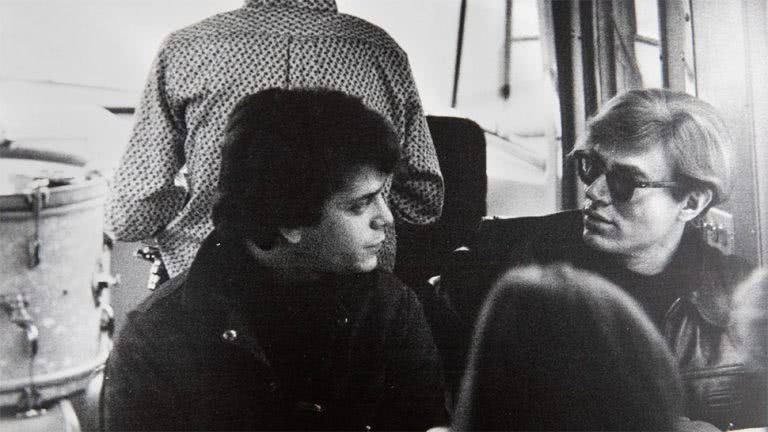Six years on from his passing, a previously-unheard tape of music made by Lou Reed for former mentor Andy Warhol has been uncovered.
They’re one of the most famous rock groups of all-time, but for many, The Velvet Underground are best-known for their iconic debut album, featuring cover artwork bearing the name of its designer, Andy Warhol.
Having taken the band under his wing, Warhol helped bring The Velvet Underground to widespread attention, and maintained a close working relationship with its members, including the late Lou Reed.
However, by 1968, things had taken a turn, and Warhol had been fired as the band’s manager. While he and Reed would associate from time to time, they never again entered into a professional relationship, much to the dismay of many fans.
Now, The New York Times reports that Judith A. Peraino, a music professor from Cornell University, has uncovered a cassette tape that shows what the pair’s relationship may have been like if they continued working together.
The tape, which was recorded in 1975, was discovered two years ago while Peraino was researching material for a book at the Andy Warhol Museum in Pittsburgh, and features “a suite of songs” which sees Reed taking influence from Warhol’s 1975 book, The Philosophy Of Andy Warhol: From A To B And Back Again.
Check out ‘All Tomorrow’s Parties’ by The Velvet Underground:

The first side of the tape includes live recordings made by Reed during his 1975 tours, but the second side – titled Philosophy Songs (From A To B & Back) – features a the artist performing solo, paying tribute to his former mentor by using his words as lyrical inspiration.
Love Classic Rock?
Get the latest Classic Rock news, features, updates and giveaways straight to your inbox Learn more
Of course, the songs aren’t exactly glowing with praise for the art icon, who passed away in 1987.
Although Reed and John Cale would focus an entire album around Warhol with 1990’s Songs For Drella, one tune sees Reed criticising Warhol for his “apparent indifference” towards the deaths of Candy Darling and Eric Emerson, before claiming (and subsequently apologising) that the artist should have died when he was shot in 1968.
“This tape is Lou Reed working out what he does best,” Peraino explained of the songs, “which is figuring out the character of his song, telling the stories, being as brutally honest as he is in many of his writings.”
As it turns out, there had been very little mention of these songs over the years, with The New York Times claiming that only a solitary 1977 interview with Reed makes reference to it, while his widow Laurie Anderson – who donated his archives in 2017 – claims she had no knowledge of it either.




































